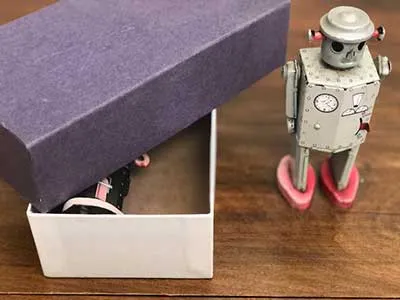Parenting My Grieving Children

Editor's Note: This is part of Nancy's Caregiving series. Please see other posts in this series.
Grief comes in waves, in ebbs and flows, even for three-year old toddlers. One minute my twins would be happily playing on the living room rug and then moments later their sunny moods would darken and they would become clingy and frightened. They needed to know my whereabouts at all times. Losing their father cracked open their sense of safety in the world. Some days the whining never seemed to end, and it took massive restraining on my part not to lock myself in the bedroom and throw my own tantrum. Casey and Rebecca were babies in a sense, lacking the ability to put words to their feelings. I, too, struggled with what to tell the kids.
Our social worker counseled to be direct as much as possible with them.
Daddy was so sick that he died. He didn’t want to die, and nobody else wanted him to die. But sometimes doctors can’t help people stay alive when they are very, very sick. When Daddy died, his body stopped working. He couldn’t move anymore or talk or eat or see or hear.
“What does it mean to be very, very sick?” they wanted to know. Month after month, they asked, “Can you die of a cold?”
It was understandable that they couldn’t distinguish between a cold and terminal illness, nor figure out Brett’s whereabouts. Mourning is an abstract concept, even for adults. It takes time to integrate a loss and for it to feel real.
Casey would often put on Brett’s shoes and walk clumsily toward the door. “I’m going out to find my daddy,” he’d announce. It was painful to see the earnestness in his eyes.
Rebecca, meanwhile, invoked her dad in a remembering sort of way. She said things like “My daddy likes his bagel warm. My daddy likes coffee.”
That first year without Brett was a pendulum of conversation, reasoning, and tears. But there’s nothing easy or linear about parenting, let alone parenting grieving children. I learned not to expect too much from myself or from them. Telling my children that “Mommy feels sad because Daddy died,” was an important way for them to affirm their dad’s death and the normalcy of experiencing sorrow after loss.
Things came to a head when Casey kept asking to go home. We’d be sitting in our kitchen or elsewhere in the apartment but still home was not home without Brett. His level of angst led me to find a therapist.
We had several amiable therapy sessions before it became apparent that Casey refused to accept the fact that Brett was dead. “We need to get in our car and pick Daddy up at the hospital,” he repeated with urgency. “No,” the therapist said. He tried to explain but Casey cut him off. “We scared him away.” My heart skipped a few beats hearing my young son’s angst.
The following week, the therapist gave Casey two palm-size metal robots, one black, one white, and a purple box. The robots were for pretend play, for Casey to make conversation with Brett. Casey was fascinated by the robots and immediately began to play along. Minutes passed before the therapist encouraged him to bury one of the robots in the box, which Casey dutifully did, and with great focus.
It would take time for him to process the permanence of death, but the pretend burial proved to be a gentle segue to greater understanding.
Suggested Resources:
Camp Erin’s free summer programs for grieving children
elunanetwork.org/camps-programs/camp-erin/
Helping Grieving Children and Teenagers
www.cancer.net/coping-with-cancer/managing-emotions/grief-and-loss/helping-grieving-children-and-teenagers
Helping Children When a Family Member Has Cancer: When a Child Has Lost a Parent
www.cancer.org/treatment/children-and-cancer/when-a-family-member-has-cancer/when-a-child-has-lost-a-parent.html
Talking to Kids and Teens about Cancer
www.CancerSupportCommunity.org/talking-kids-teens-about-cancer
Bereavement
www.CancerSupportCommunity.org/bereavement
Find Support
www.CancerSupportCommunity.org/find-support
Find a local CSC or Gilda's Club for support groups and other resources
www.CancerSupportCommunity.org/FindLocation